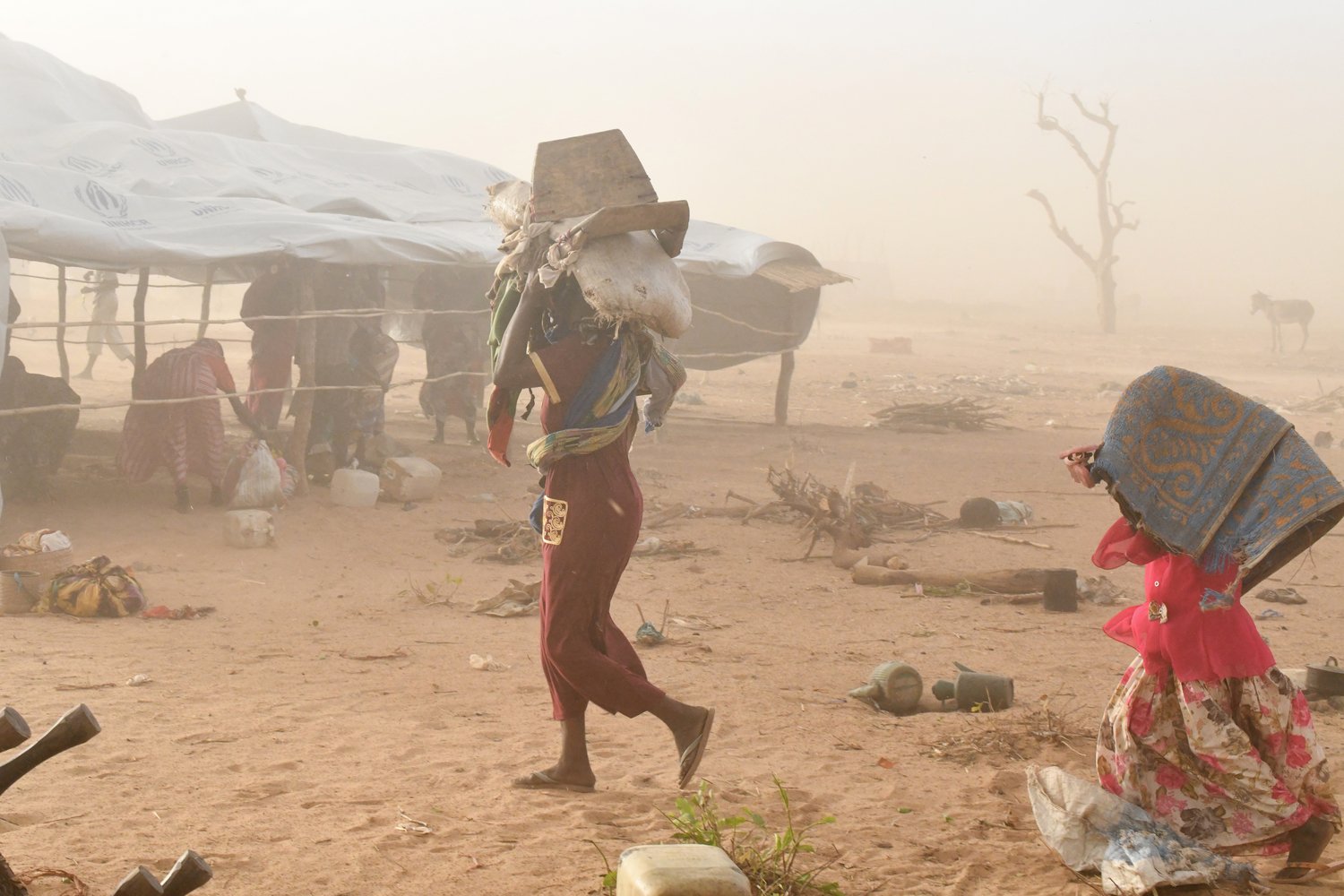Chad/Darfur: Transfer of refugees to safer inland camps
Chad/Darfur: Transfer of refugees to safer inland camps
Tensions along the volatile Chad-Sudan border remain high, with people fleeing in both directions and a second planned transfer today of new Darfur arrivals in the Birak area of eastern Chad delayed because of renewed fighting on the Sudanese side of the frontier. More displacement is expected.
UNHCR yesterday (Thursday) started the transfer of a first group of 117 vulnerable Sudanese refugees from the Birak border area towards Kounoungou camp, about 70 km inland near the town of Guéréda. The refugees (34 families), who fled fighting that began early last month in strife-torn West Darfur, were transported together with their belongings in four trucks.
This first group is among more than 13,000 newly arrived refugees from West Darfur who fled during the past four weeks after air and ground attacks on villages and camps for internally displaced people (IDPs) across the border in Sudan. The refugees, who had been living in the open since they started arriving in Chad on 9 February, expressed relief at being moved to a safer environment. Over 70 percent of the new arrivals are women and children.
We were planning to continue the transfer today (Friday), followed by others on Monday, but fresh fighting was reported across the border near Jebel Moun yesterday afternoon so the transfer is temporarily on hold. Our staff now anticipate further arrivals and will restart the transfer as soon as the security situation allows.
Upon arrival in Kounoungou camp, one of two UNHCR-run refugee sites near Guéréda, the newly arrived refugees are medically screened, receive their first one-month food ration from WFP [World Food Programme] and are provided with a package of relief items. All of them will be temporarily housed in tents and then allocated a space where they can build their own houses.
The transfer exercise is challenging, since the newly arrived refugees are spread across 11 villages along a 40-km stretch of the remote Chad-Sudan border. Those being relocated do so only on a voluntary basis, and most have indicated they want to move away from the border.
Meanwhile, both of the Guéréda area refugee camps, Kounoungou and Mile, are being prepared to accommodate the new arrivals, with extension work underway. As of next week, we will have at least 12 trucks available to transport refugees from the border to the camps.
UNHCR and its partners operate 12 refugee camps in eastern Chad which host 240,000 refugees from the war-torn Darfur region. An additional 50,000 refugees from the Central African Republic are in three camps in southern Chad.
In West Darfur itself, meanwhile, military activity in the northern part of the state opposite the Birak area in Chad continues to provoke forced internal displacement. In the town of Sileah, the fear of further attacks has again driven hundreds of civilians from their homes, according to UNHCR staff who were there yesterday (Thursday) as part of a joint humanitarian assessment mission. This new displacement has left Sileah almost empty, with only 150 to 200 mostly elderly persons remaining. Most of the town's 20,000 residents had fled in February. Some 1,500 people had returned a week ago, but most of them have now fled again because of fear of renewed fighting, the remaining residents said yesterday.
Last month, the majority of the Sileah population is believed to have fled to the Jebel Moun area that has been off limits to aid workers for a month, despite the presence of an estimated 20,000 civilians who may be in dire need of assistance. Some 13,000 of them could be from Sileah, according to UN estimates.
Further complicating the humanitarian situation is the reported arrival of an unknown number of Chadians in southern West Darfur near the borders of Chad, Sudan and the Central African Republic (CAR). Initial reports cite general insecurity following the withdrawal of the Chadian army in the region. The Chadians are from the Tissi area and are arriving in the Um Dukhum region of southern West Darfur. It's estimated that some 200 Chadian families arrived in Um Dukhum last week. UNHCR and its partners are in the process of verifying the number. A smaller number of Chadians from Tissi has also been recorded in the Mukjar area, further inland in West Darfur. UNHCR interviewed 11 of them in Mukjar who said they had been told to either relocate within Chad or to cross to Sudan for safety.
West Darfur is already hosting nearly 50,000 Chadian refugees.








